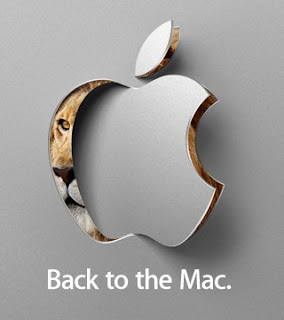 So Mac OS X Lion has just been released and the first app to hit the Lion app store is surprising many users. That app is Mac OS X Lion Server, which will cost you $49, a mere fraction of the $499 price tag that was on Snow Leopard's Server. With that the Mac OS X Server that everybody knew is no more. In addition to that, just to make the deal a little sweeter, Apple is giving you Xsan, the SAN software that the company used to sell for $999. With Mac OS X Lion Server you can turn a Mac Pro with a fiber channel card into a super fast bulletproof distributed storage server for Mac networks.
So Mac OS X Lion has just been released and the first app to hit the Lion app store is surprising many users. That app is Mac OS X Lion Server, which will cost you $49, a mere fraction of the $499 price tag that was on Snow Leopard's Server. With that the Mac OS X Server that everybody knew is no more. In addition to that, just to make the deal a little sweeter, Apple is giving you Xsan, the SAN software that the company used to sell for $999. With Mac OS X Lion Server you can turn a Mac Pro with a fiber channel card into a super fast bulletproof distributed storage server for Mac networks.While you may already be drooling over these kinds of prices, it all seems a little odd, and it raises a few questions. Many critics will undoubtedly point the Lion Server drop in price, the abolishment of node-locked licensing, and simplification of the administrative GUI as a foreshadowing of Apple leaving the server market completely. The price of $49 does not mitigate the risk of implementing a server platform that appears to be in decline.
On the other hand, Lion Server doesn't really resemble a last ditch effort by a dying market. Instead it seems to signal a shift in mission. As opposed to trying to displace enterprises Windows, Linux and Unix servers, Lion Server seems to focus primarily on providing easily managed native network services to work groups of iOS and Mac users. Lion Server's Profile Manager is key to enterprise deployments of iOS devices. Profile Manager has the ability to configure a user-owned device that is connected to a company infrastructure for company services that include ones not hosted by Mac OS X or iCloud.
Mac devices, like iPads or iPhones, that are owned by the company can also be locked down with profiles that apply certain defined groups of users or devices. All you have to do as the user is visit a web portal that Lion has set up and hosted automatically. After the profile is loaded, updates can be pushed to a certain device over the air and so can emergency commands such as remote wipe and password change. And that is only one of the many services offered by Lion Server. $49 equips your network with any combination of file, email, calendar, Web, chat, podcast, VPN, directory or backup services. And you know how committed Apple is to standards, so you can rely on the fact that Lion Server remains a good candidate for everyday use.
Source: InfoWorld - Apple's radical new Mac server strategy

 Microsoft just recently announced the general availability of Windows Small Business Server 2011 Essentials last week. The server, which was designed to support small businesses with around 25 users, is able to be purchased via Microsoft's volume licensing channels or from original equipment managers and retail outlets. Microsoft's volume licensing customers are also supposed to have had access to Windows SBS 2011 Essentials since May 1.
Microsoft just recently announced the general availability of Windows Small Business Server 2011 Essentials last week. The server, which was designed to support small businesses with around 25 users, is able to be purchased via Microsoft's volume licensing channels or from original equipment managers and retail outlets. Microsoft's volume licensing customers are also supposed to have had access to Windows SBS 2011 Essentials since May 1.